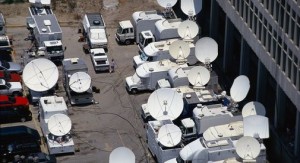The BBC has awarded a contract worth up to £6m to specialist IT firm SciSys to buy its groundbreaking radio technology.
Under the three to four year contract, Chippenham-based SciSys will supply its dira! product for use by BBC Radio, paving the way for an integrated audio production system across BBC national, regional and local radio networks.
The contract, awarded under the BBC’s Second Large Scale Framework Agreement, builds on an earlier deal between the corporation and SciSys. That four-year contract, which ended last year, was worth up to £15m to SciSys and involved using dira! to improve audio editing and playback. 
The new agreement will, according to SciSys, roll out replacement and/or upgrade systems and provide business continuity/disaster-recovery facilities on existing dira! technology at the BBC in London (BBC Parliament studios at Millbank), local radio networks in England and Wales and the new Radio Digital Archive.
SciSys divisional director of media & broadcast Dr Karl-Willi Pieper said: “This second framework agreement strengthens the long-term relationship with the BBC. We have delivered first-class systems and services to this very important customer for the past decade and are delighted to be able to continue to do so for a further four years.”
SciSys CEO Klaus Heidrich added: “We are delighted to continue the relationship with the BBC, who we see as a strategic customer for our dira! product. It continues to be a very important and beneficial reference for our media & broadcast activities.”
SciSys’ media & broadcast division accounts for about 20% of annual revenues at the group, which employs 450 staff across its offices in Chippenham, Bristol, Leicester and Reading and two in Germany.
SciSys also operates in the space, defence, environment and government sectors for clients spanning the European Space Agency, the BBC, Airbus and the Ministry of Defence.
Last week the group announced that its 2014 pre-tax profits doubled to £3m on sales down just over £2m at £40.3m. But an accompanying warning that this year's results would be ‘flat’ led to a 10% drop in its share price.



















